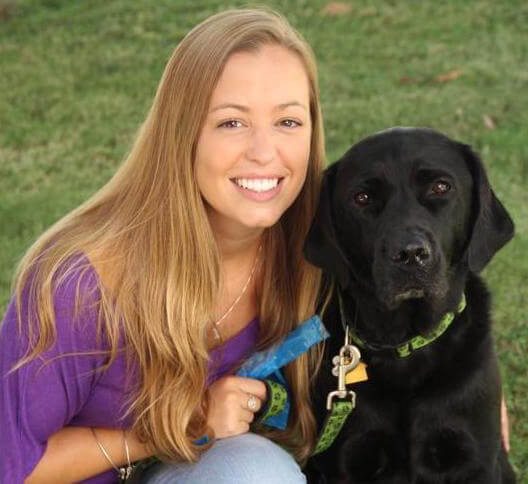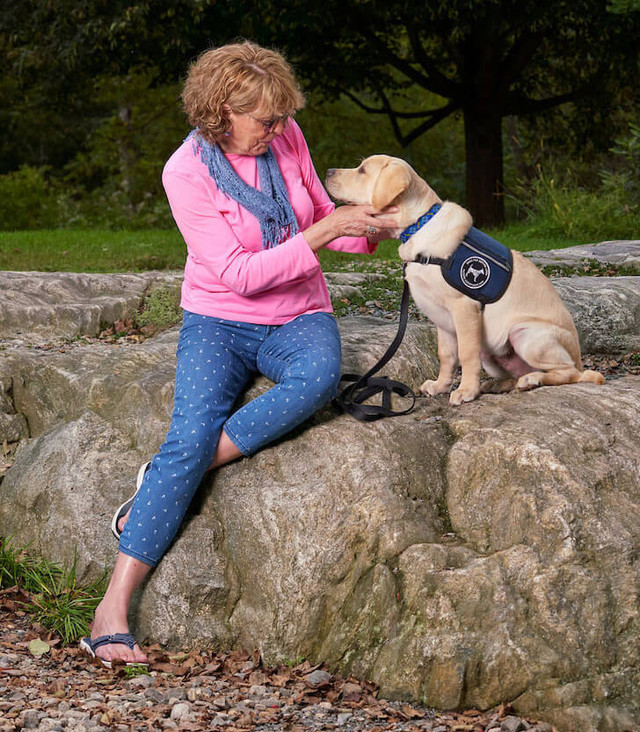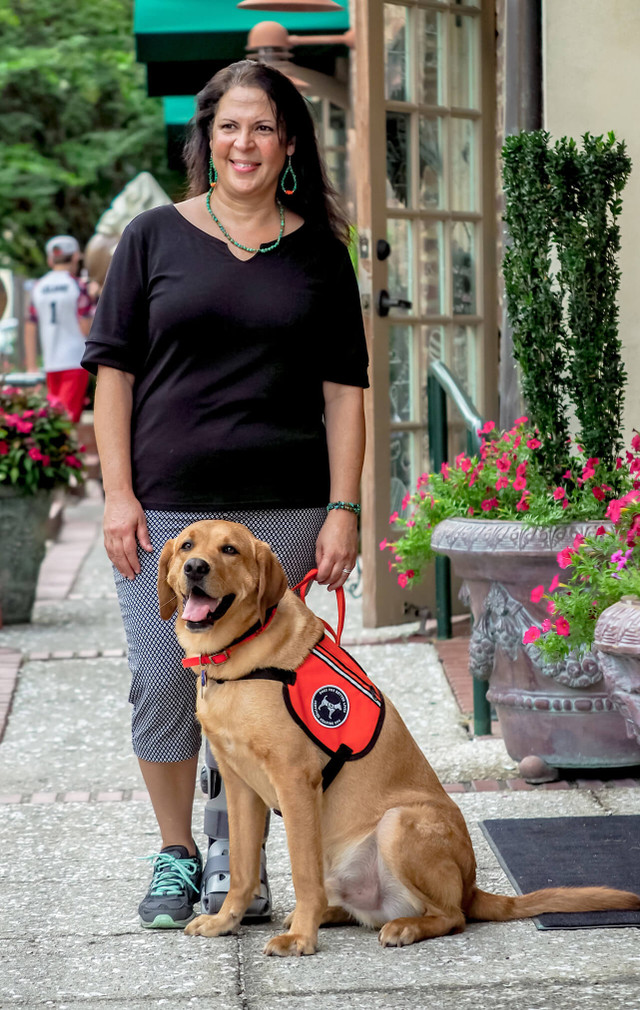Dogs for Better Lives has been providing Assistance Dogs to people across the nation since 1977.

An interview with Sarah McCracken Executive Director, NE Region at Dogs for Better Lives
Sarah McCracken came to Cape Cod to open the Northeast Campus for Dogs for Better Lives. “It worked out well for me because this is where I wanted to live. This is home for me.”

Kuranda: Tell us about Dogs for Better Lives.
Sarah McCracken: Dogs for Better Lives is a 501c3 national nonprofit and has trained and placed Assistance Dogs since 1977. Our mission is to professionally train dogs to help people and enhance lives. Dogs for Better Lives operates three programs: Hearing Assistance Dogs, Autism Assistance Dogs and Facility Dogs. We use a combination of rescue dogs and purpose-bred dogs – which are typically Labrador and Golden retrievers or a cross between the two. One thing that we take a lot of pride in is our lifetime commitment both to our dogs and our clients. We place our dogs at zero cost to our client, thanks to donor support.

Kuranda: I understand you’ve had some experience opening new facilities. Can you tell us about it?
Sarah McCracken: This is the second facility I’ve opened in my career and I couldn’t be happier to do it in an area I’ve always called home. I opened my first facility for Canine Companions for Independence for their South Central facility in Irving Texas.
Kuranda: What experience have you had with Assistance Dogs?
Sarah McCracken: I’ve been with Dogs for Better Lives for two years now and been in the Assistance Dog industry for 13 years. While in college at Penn State, I thought I wanted to do animal assisted therapy and work as a therapist earning degrees in Rehabilitation Services and Psychology, but then I learned about the world service dog training and it seemed like a fit for me. So, I finished up my degrees and then started my career as an Assistance Dog trainer, working in California and Texas before returning back to Massachusetts.

Kuranda: Tell us about your new facility. What are your plans for it?
Sarah McCracken: "Dogs for Better Lives" Northeast campus is both an Assistance Dog training facility as well as a boarding & daycare facility. When we acquired the facility on Cape Cod, it was already a boarding and daycare business. We decided to keep the boarding business as a way to help offset costs and remain fiscally responsible. Profits from the boarding business go directly to support our Assistance Dog programs. The Northeast campus makes it possible to provide more Assistance Dogs to people in need across the eastern U.S., without relying on costly cross-country transportation from our west coast campus, which is based in Central Point, Oregon.
Kuranda: How is your progress with your new facility?
Sarah McCracken: Last July we accepted our first dogs into training here in the Northeast. We have two Assistance Dogs ready to go out to our clients in the next couple of weeks and have more in training. It takes about six months for a dog to be ready for a client but every dog learns at their own pace.
Our first two placements from our Northeast campus are Hearing Assistance Dogs. These dogs are trained to alert someone who is deaf or hard of hearing to a sound - like a door knock, an oven timer, a phone ringing or a smoke alarm. When a Hearing Dog hears one of the sounds, they will come over to the client and use their nose to put pressure to their leg until they get their attention. The client will gesture ‘what?’ and the dog will lead them to the source of that sound. Our clients have great peace of mind knowing they won’t miss important, and sometimes life-saving, sounds.
Kuranda: What made you decide to train your first dogs for hearing assistance?
Sarah McCracken: These first two dogs went into the hearing assistance track because that is what they most enjoyed doing. When assessing our dogs in training, we look for the skills the dog naturally excels at. With that said, there are times when a dog isn’t suited for our program. These dogs will end up doing what we call a career change. That’s where they become a wonderful pet for an individual and their family.

Kuranda: What has your experience been with Kuranda beds?
Sarah McCracken: I’ve been using Kuranda Dog beds for as long as I have been in the industry so over a decade - primarily in a kennel environment. They are durable, easy to clean and provide a comfortable place for the dogs to rest. We want the dogs in our kennel to be comfortable so they want to learn. We’ve been able to outfit all our kennels in the Northeast campus with Kuranda Beds, cleaning and disinfecting them daily.
